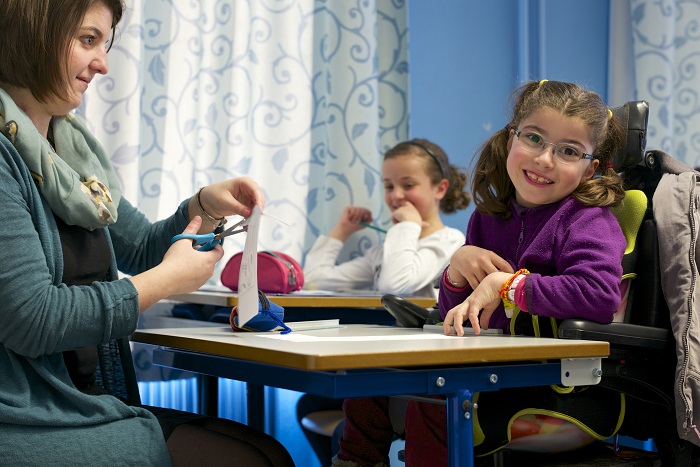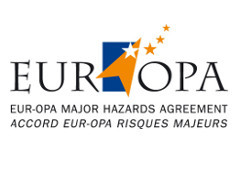People with Disabilities

“Measures to prevent, reduce and prepare for disasters and to distribute relief and promote recovery, and also the enjoyment of fundamental rights are secured and implemented without distinction on any ground such as gender, sexual orientation, race, colour, language, religion, political or other opinion, ethnic group, affiliation to a national minority, socioeconomic circumstances, birth, disability, age or other status.”
People with disabilities are confronted with a number of difficulties regarding disaster risk reduction. They may experience difficulties in obtaining the correct information on prevention or even in receiving alerts in the case of emergency situations. There may be physical barriers to enter or leave a building (for instance lifts cannot be used in some circumstances) or emergency services may not be prepared to efficiently handle people with some disabilities.
The need to protect people with disabilities implies a new vision of the cultural framework of emergency management where the respect of human rights is the basis of any intervention strategy. In future, relevant local, national and international institutions should increasingly modify their approach according to this principle. Public authorities have the duty to see that people with disabilities are not discriminated or excluded when elaborating new disaster risk reduction strategies, policies and interventions.
The Council of Europe strives to promote the perception of people with disabilities as holders of rights in the same way as all other citizens, considering disability to be part of human diversity. Defending values and promoting human rights through Including People with Disabilities in Disaster Preparedness and Response is at the heart of the Council of Europe’s mission. The moral and ethical case for an inclusive approach guarantees the right of people with disabilities to adequate care in disasters. Little has been done to include people with disability into practical programmes of action in civil protection. Yet this topic is dealt with at prominent places and in key documents.
- Development of informative Material concerning Earthquake Protection Measures, for People with disabilities (2014 - 2015)
Coordinating Centre : European Centre on Prevention and Forecasting of Earthquakes, Greece - Development of information-educational materials on awareness and preparedness to an earthquake and rules of behaviour for people with disabilities (2012 - 2013)
Coordinating Centre : European Interregional Scientific and Educational Centre on Major Risk Management, Armenia - Involving people with disabilities in disaster planning and preparedness, as an integral part of disaster preparedness and response (2014 - 2015)
Coordinating Centre : European Interregional Scientific and Educational Centre on Major Risk Management, Armenia
- Toolkit for good practice on Major hazards and people with disabilities
21 May 2015, Brussels, Belgium - Conference on Including People with Disabilities in Disaster Preparedness and Response
4-5 December 2014, Brussels, Belgium - Workshop on Including People with Disabilities in Disaster Preparedness and Response
22-23 October 2013, Paris, France



